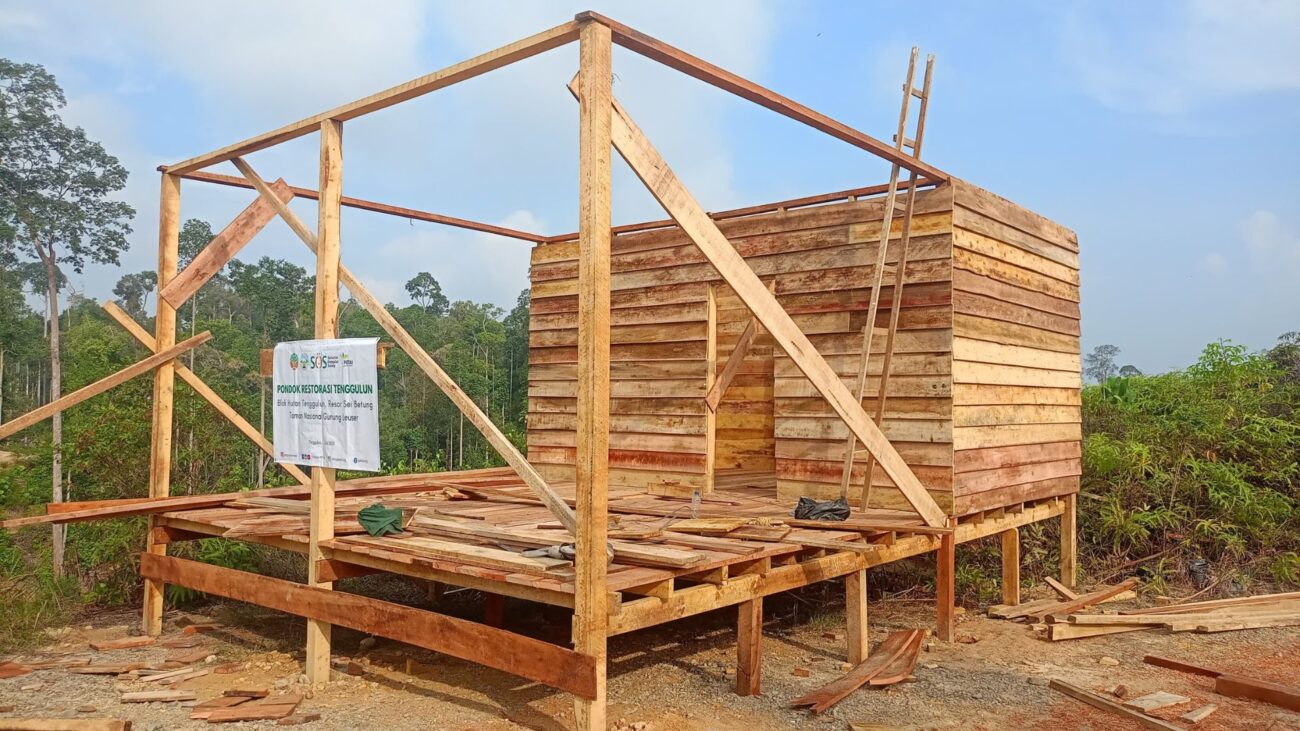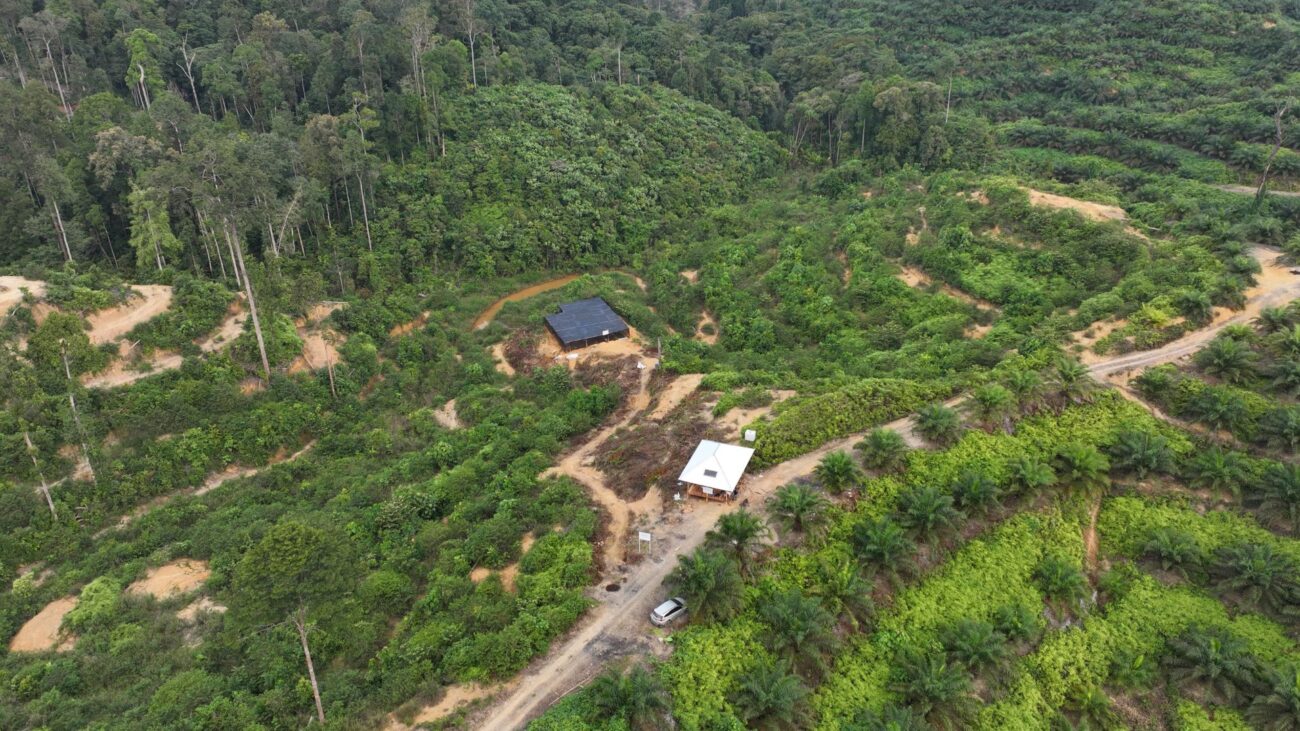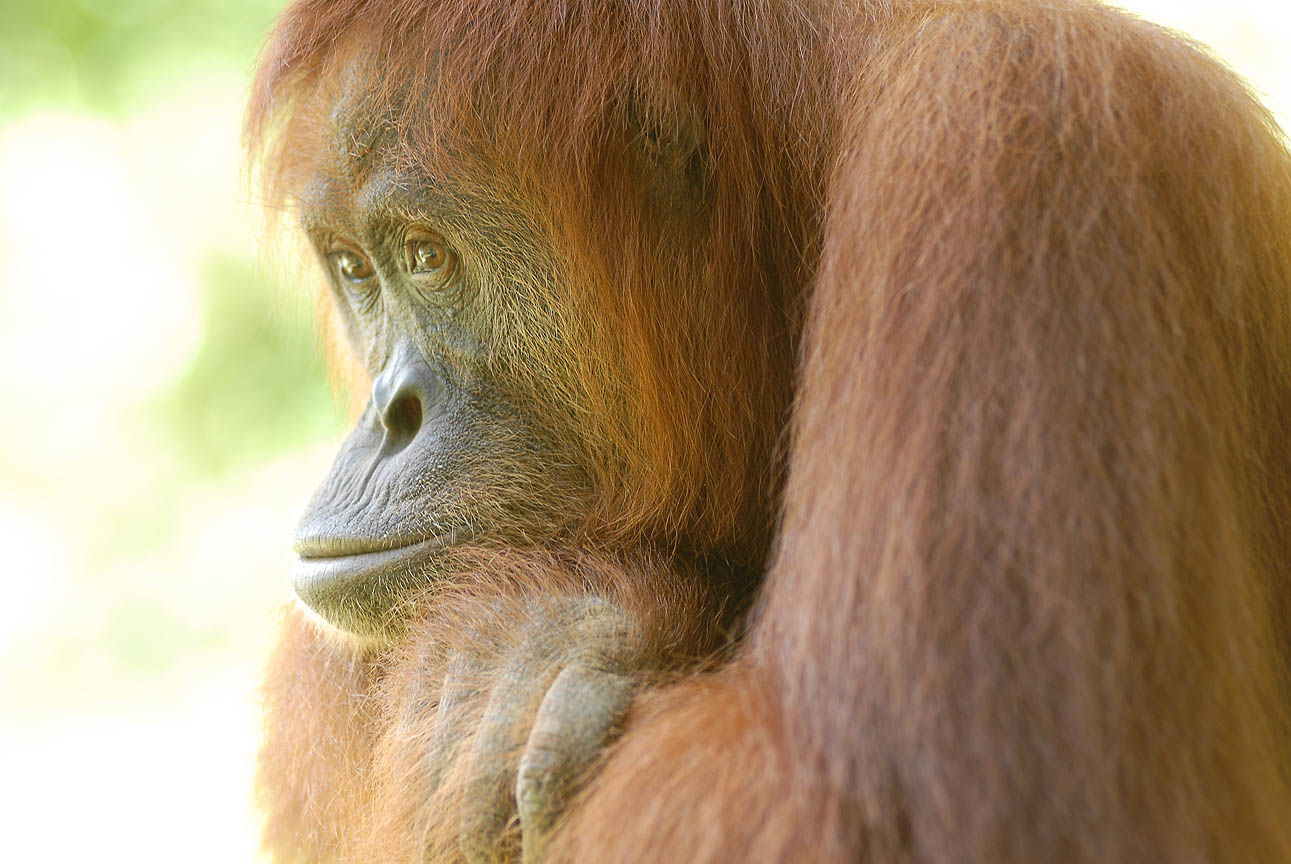The rainforests of North Sumatra are a vital habitat for orangutans and an incredible reservoir of biodiversity. Sumatra is the only place on Earth where wild orangutans, tigers, rhinos, and elephants coexist. Beyond these iconic species, Sumatra’s rainforests are home to thousands of plant species, including the world’s tallest and largest flowers, and a rich array of other mammals, birds, reptiles, and amphibians.
One crucial area in North Sumatra is Gunung Leuser National Park (GLNP) – a UNESCO World Heritage site and protected area. However, over 990 hectares of forest have been lost in the North-East area of GLNP to small-scale oil palm plantations. This land is barren and uninhabitable by wildlife.
The good news is that PETAI has been granted permission from the Indonesian authorities to develop and manage the long-term rewilding of this degraded area. Funded by SOS, PETAI will initially focus on 100 hectares of land – rewilding and restoring connectivity in the region for wild orangutans and countless other species.
The new partnership will use a multi-faceted approach to rewilding, including:

The restoration cabin being constructed in the rewilding site.
“We are incredibly excited to embark on this rewilding journey with our new partners in Sumatra,” said our CEO, Helen Buckland “The current rewilding programmes pioneered by SOS and our frontline partners have proven how barren land can be transformed into a thriving ecosystem in just a few short years. We are thrilled to take this knowledge and apply it to such a critical area in the Leuser Ecosystem.”
She also highlighted the incredible importance of this work: “The biodiversity in this region is unparalleled and, as a keystone species, the protection of orangutans is a global conservation priority. This reclaimed land will give wild orangutans more space to roam, feed, breed and ultimately to thrive. By combining our expertise with the invaluable local knowledge and dedication of PETAI, we are confident that we can make a lasting impact for both wild orangutans and forest-edge communities.”
Masrizal Saraan, Executive Director of PETAI, explains: “Forest restoration is not just about planting trees. This is a story about how people and nature can reconnect. We make sure the local community is at the heart of our rewilding programme. Before carrying out restoration, we hosted an outreach session with local villages, which was warmly received by community leaders and residents. Now, our aim is to create meaningful livelihoods in the community while ensuring that the forest is restored using locally-sourced species.”
He also gave us an update on the progress: “Already, we have established a tree nursery with capacity for up to 90,000 seedlings, and our team has begun collecting wild seedlings from the forest and preparing them for planting. We have nurtured over 10,000 seedlings so far.”

Aerial view of the restoration area in Tenggulun.
Masrizal emphasized their commitment to science: “In addition to our community-centred approach, our rewilding programme is based on data and scientific research. From vegetation analysis to land cover mapping with drones, this data helps us understand forest conditions in more detail. Our initial biodiversity surveys have documented 46 species in this area, including siamangs, gibbons, leopard cats, sun bears, and wreathed hornbills.”
“This confirms the critical ecological value of the site and reaffirms our commitment to its long-term recovery. Through the collaboration of social and scientific approaches, the support from SOS, and the genuine enthusiasm of local people to protect the forest, we believe that this restoration effort will improve the ecosystem and strengthen the relationship between humans and nature.”
This new partnership is an incredible opportunity to make a tangible difference for Sumatran orangutans and the entire ecosystem they call home. We invite businesses and corporations to join us in supporting these crucial rewilding initiatives in Sumatra.
To learn more about how you can get involved and help us bring these vital rainforests back to life, please visit: orangutans-sos.org/rewild-fund
Together, we can create a brighter future for orangutans, forests, and the communities who depend on them.
You can help protect Sumatra's Orangutans. Click to get updates
